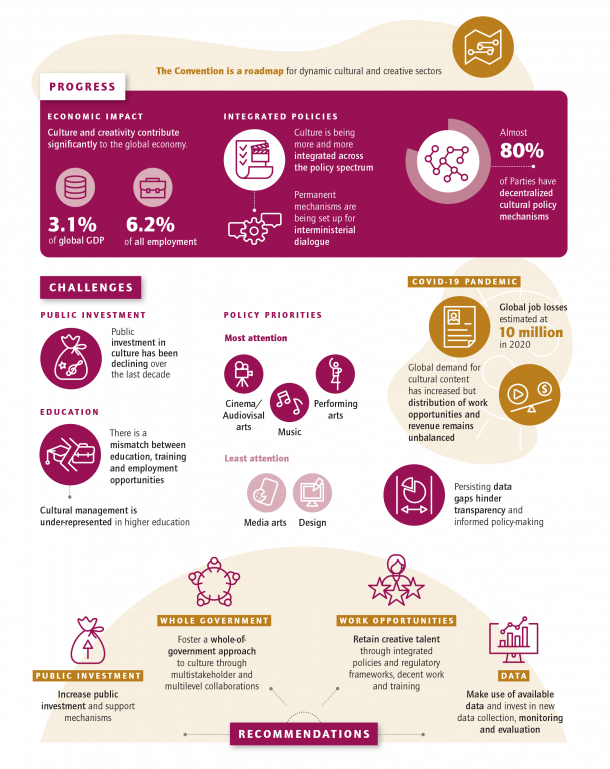
Building resilient and sustainable cultural and creative sectors
Summary
The first chapter analyses how the implementation of the Convention, as an integrated policy framework, supports the development of sustainable systems of governance for culture, including in times of crisis. With the conviction that the cultural and creative sectors should not be the exclusive concern of cultural policy-makers, multistakeholder and decentralized policy processes are progressing and interministerial dialogue is becoming more institutionalized. Nonetheless, a whole-of-government approach to cultural governance continues to be lacking. The data and indicators to inform policy-making and monitoring also remain absent. Despite their undeniable contribution to the economy, public investment in culture and creativity is uneven across regions and has been declining over the last decade. The economic disruption caused by the COVID-19 pandemic, combined with its impact on cultural employment, raises serious concerns, such as the risk of a talent drain. Decent economic and social conditions for professional development in cultural and creative careers is a sine qua non condition to build back better.



